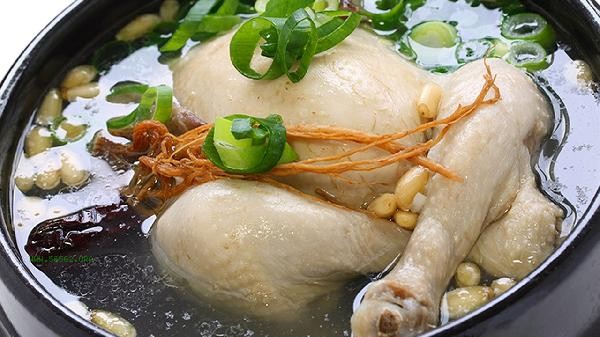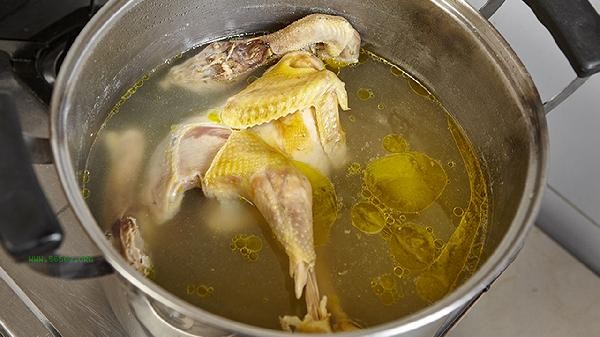To make chicken soup delicious and nutritious, the key lies in the selection of ingredients and the control of heat. A delicious chicken soup needs to be fresh, fragrant, and rich, while a nutritious chicken soup needs to retain the protein, vitamins, minerals, and other nutrients in the ingredients.

1. Material selection and matching
Choose fresh old hens or free range chickens, which have firm meat and make the soup more delicious. You can pair it with some nourishing ingredients such as goji berries, red dates, yams, etc. to increase the nutritional value of the soup. Ginger and scallions can remove fishy smell and enhance aroma, and a small amount of cooking wine can also help enhance the flavor of the soup. Avoid using too much seasoning to avoid masking the freshness of the chicken soup itself.
2. Processing ingredients
Chicken needs to be blanched in advance to remove blood foam, so that the soup color is clearer. When blanching, add cold water to the pot and skim off the foam when the water boils. Medicinal ingredients such as goji berries and Angelica sinensis should not be added too early to avoid losing their effectiveness after prolonged cooking. Root vegetables such as carrots and yams can be cut into pieces and cooked with chicken.
3. Temperature control
The key to cooking chicken soup is to turn the high heat to low and simmer slowly. High fire can fully dissolve proteins, while low fire allows nutrients to slowly release. Generally, it is advisable to stew for 1-2 hours. If the time is too short, the taste will be insufficient, and if it is too long, nutrients will be lost. Using a clay pot or ceramic pot can better maintain temperature uniformity.

4. Seasoning timing
Salt should be added when the soup is about to stew, as adding salt too early can cause the meat to become mushy. Other seasonings such as pepper can also be added last. If you want the soup to be more rich, you can turn on high heat and collect the juice at the end, but be careful not to over concentrate and cause nutrient loss.
5. Nutrient retention
When boiling soup, do not frequently open the lid to prevent the aroma from evaporating. Heat sensitive nutrients such as vitamin C are prone to loss, so it is recommended to add ingredients rich in vitamin C when the soup is almost ready. The oil on the surface of chicken soup can be retained in moderation, which can enhance flavor and contain certain nutrients. However, patients with cardiovascular disease should remove some of the oil.

When making chicken soup, attention should be paid to the freshness of the ingredients and the rationality of the combination. Different physical fitness groups can adjust the ingredients. Drinking chicken soup during a cold can help supplement nutrition and hydration, but patients with hyperuricemia should control their intake. It is recommended to drink chicken soup 2-3 times a week, with 1-2 small bowls each time. It can be paired with vegetables and fruits to ensure a balanced nutrition. The cooked chicken soup can be refrigerated and stored for 2-3 days. When reheating, do not boil it to avoid affecting its taste and nutritional value.








Comments (0)
Leave a Comment
No comments yet
Be the first to share your thoughts!